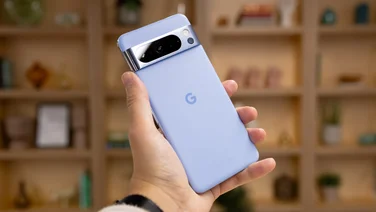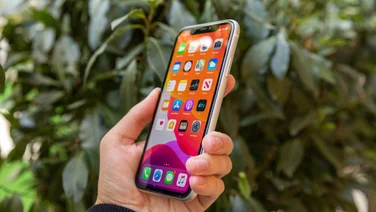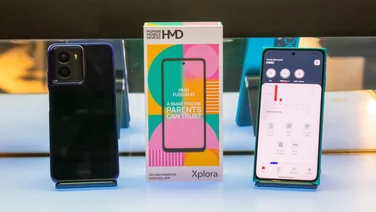To help us provide you with free impartial advice, we may earn a commission if you buy through links on our site. Learn more

Even with the cost of living steadily rising all around us, it can still be very easy to get ensnared by the allure of flagship smartphones. The likes of Samsung’s Galaxy S24 series, the Apple iPhone 16 family and Google’s own Pixel 9 quartet have all made a solid impression this year, with flashy new features, slick designs and a dollop of AI functionality to top it all off.
As my career in phone reviewing has gone on, however, I’ve become more and more appreciative of the mid-range, where you can often find a much more attractive balance between price and features than you’d see in flagships. As such, whenever someone in my personal life asks my opinion on what phone they should go for next, I don’t jump straight to the four-figure options. Instead, I pull the Google Pixel 8a out of my pocket.
Start a free 30-day trial of Amazon Prime
Before we get into why I think that the Pixel 8a is the best bet for most people, it’s worth highlighting that this deal – like all offers in the Prime Big Deal Days sale – is only open to those with an active Amazon Prime membership. If you aren’t currently subscribed, you can follow the link below to start a free 30-day trial and still get the discount.
Google Pixel 8a: What’s the deal?
The Pixel 8a originally retailed for £499 (128GB) and £559 (256GB) but since launching earlier this year, the prices have averaged around £469 and £529, respectively. This Prime Day deal sees both variants plummet to their lowest prices on record, with the 256GB model dropping down to £459 and the 128GB falling to just £399.

Reviewing it based on the original retail prices, I adorned the Google Pixel 8a with every accolade I could throw at it, rating it a full five stars and bestowing our highest honour – the Expert Reviews Best Buy award. Quickly after that, the Pixel 8a took pole position on our roundup of the best mid-range phones, easily outclassing rivals in its price range.
Google Pixel 8a: What’s so good about it?
As alluded to, I currently use the Pixel 8a as my personal phone. I’ve been meaning to upgrade to the Pixel 9 Pro but the truth is that I keep putting it off, because I struggle to find reasons to go through the effort when the Pixel 8a serves me perfectly well. Sure, the newer 9 Pro has a telephoto camera and gets a couple of extra AI-focused features, but realistically, how often am I going to use those? For my daily needs, the Pixel 8a is still more than enough phone.
Physically, the Pixel 8a is a wonderful phone, with compact proportions, silky soft matte plastic on the rear and a bright, colour-accurate 6.1in OLED display. It managed to shave off a few grams compared to the Pixel 7a, now weighing a breezy 188g, and the slightly rounded edges make it more comfortable to hold in the hand – especially compared to the more iPhone-like flat edges on the Pixel 9 series.

The stylish rear camera bar houses a pair of lenses, with a 64MP (f/1.9) main camera and a 13MP (f/2.2) ultrawide shooter. Pixel cameras are always a high-point and it’s no different here; the main lens captures wonderfully detailed images with exceptional dynamic range in good lighting and striking, well-coloured shots after dark, too. The ultrawide impressed as well, maintaining the colour palette of the main lens and keeping a good level of detail, even in those tricky corner areas.
The rest of the hardware is just as good, with the 3GHz Tensor G3 chipset running the show, paired with 8GB of RAM. General performance is solid for this price and gaming especially impressed in my testing, with the Pixel 8a managing an onscreen framerate of 73fps in the GFXBench benchmarks. Battery life is good, albeit not much better than the Pixel 7a, lasting for a hair under 24 hours in our looping video test.

Where the Pixel 8a really gets interesting is the software. In a bold move, Google pledged the same seven years of OS updates and security patches that the rest of the Pixel 8 series received, greatly expanding the value for money here. You’re also getting Gemini Nano features, including the new AI-powered voice assistant, Circle to Search and Summarise in the Recorder app.
Google Pixel 8a: Any downsides?
The major issue that I pointed out in my review was that the Pixel 8a retailed for £50 more than its predecessor – even though, by the end of the review, I had conceded that the phone added enough features to justify its inflated price. That concern is naturally assuaged by this hefty discount, which only leaves us with one other problem.
This second downside is far from unique to the Pixel 8a – indeed, the rest of the Pixel family aren’t much better and the priciest phones from Apple and Samsung also fall into the same category. The issue is slow charging speeds, with the Pixel 8a recharging at an achingly slow 18W. For comparison, the Motorola Edge 50 Fusion supports 68W charging, and can fully recharge in under 40 minutes, whereas the Pixel 8a takes over an hour.

As I said, plenty of the biggest brands, for whatever reason, are still yet to dramatically improve their charging speeds, so this problem doesn’t fall solely at the Pixel 8a’s door. But when the likes of Motorola are out here showing that nippy charging is perfectly possible on a sub-£500 phone, there’s not much excuse for Google to omit it any longer.
Google Pixel 8a: Should you take the deal?
With the only fly in the ointment being the slower charging speeds, I can say with certainty that you absolutely should take this deal. The Google Pixel 8a was a fantastic phone at its original price but this discount makes it even better value for money. The cameras and display are a class above your standard mid-ranger, battery life and performance are solid and you get a massive seven years of software support, along with some fun Gemini AI features.
The siren’s song of flagship phones will always be alluring but, with prices consistently pushing to four figures and beyond, there’s never been a better time to really take stock of what you want and need from your smartphone. If the list amounts to a stylish build, excellent cameras, fast-enough performance and the security of knowing that the software will stay updated for years to come, I strongly recommend you save yourself some money and ditch the flagships in favour of the Google Pixel 8a.




